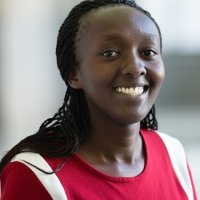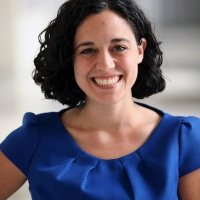The Media and Election-Related Violence in Africa: Lessons from Kenya
On April 11, 2017, The Wilson Center Africa Program hosted Ms. Sharon Anyango Odhiambo, the Communications and Outreach Officer for the African Technology Policy Studies Network in Kenya and a Southern Voices Network for Peacebuilding Scholar with the Africa Program; Mr. John G. Tomaszewski, Regional Director for Africa at the International Republican Institute (IRI); and Ms. Alison Paul DeSchryver, Program Director for Southern and Eastern Africa at the National Democratic Institute (NDI) to discuss the role of the media during tense elections with a risk of electoral violence.
Ms. Anyango presented a brief overview of electoral violence in Kenya, focusing on the 2007 post-election violence that killed over 1,000 people. She outlined the media’s role in amplifying the violence, including broadcasting hate speech on vernacular radio stations that incited ethnic violence, reporting inaccurate information that fueled retaliatory attacks, and announcing unconfirmed electoral results that led to widespread mistrust of the official results. Following the 2007-2008 violence, the Government of Kenya implemented a series of reforms, including code of conduct training for journalists, support for peace journalism, and the creation of new election reporting guidelines developed by the Media Council of Kenya (MCK). While the 2013 elections saw marked improvement in the quality of media reporting, many journalists also engaged in self-censorship, a concern that continues as the 2017 elections approach. Ms. Anyango offered several policy options for the Government of Kenya, the Media Council of Kenya, and the international community, including the repeal of harsh fines for media outlets found to breach the code of conduct, increased training for journalists on electoral processes and reporting standards, and wider accreditation of journalism programs in Kenya.
Mr. Tomaszewski focused his remarks on international support for elections in Kenya and across the continent, noting there is a sense of donor fatigue with support for Kenya’s 2017 elections following the significant investments that the international community made in the 2013 cycle. This follows on a more general decline in funding for democracy and governance work in Africa under the previous administration. He also highlighted the ways in which several African governments, including Niger, Tanzania, and Uganda, have recently justified the suppression of traditional and social media in the name of promoting peace. Given the need to foster independent local media as a component of democracy support internationally, Mr. Tomaszewski offered recommendations for forward-leaning assistance for elections and governance. In addition to training journalists on their roles and responsibilities, he argued that it is important for citizens and politicians to understand both the role and freedoms of the media, while also holding it to account for its responsibility for accurate reporting. International support, he said, should also help media outlets become financially independent, so media houses are less reliant on revenue from government procurement advertising.
Ms. DeSchryver highlighted some of the electoral challenges in Kenya, including the dramatic increase in the competitiveness of county elections in what is only the second set of elections since Kenya’s 2010 constitution introduced devolved government. Like Mr. Tomaszewski, Ms. DeSchryver noted that international assistance for the media tends to be very inconsistent across the continent, even more so than electoral assistance in general. On one end are targeted media trainings on specific issues in specific countries, such as NDI’s current project in Kenya to train journalists on how to cover gender in the 2017 elections, including reporting on female candidates. On the more comprehensive end, the international community provided coordinated support to the media during the 2013 electoral cycle. Best practices that emerged included early planning and disbursement of funds by donors, strong coordination between donors and implementers, and the coupling of electoral process support with violence prevention. For example, NDI, IRI, the International Foundation for Electoral Systems (IFES), Internews, and their local partners were able to adapt their trainings for journalists to cover frequent changes to the electoral rules and regulations, in order to improve the quality of reporting on these issues. Ms. DeSchryver emphasized the need for media assistance to be consistently included in electoral assistance packages. To be effective, funding needs to occur between electoral cycles and focus on the “long-term political dynamics” of countries.
This event was live-tweeted and webcast. Follow the Africa Program on Twitter @AfricaUpClose and catch up on the conversation with the hashtag #WilsonSmart.
For more information about the Africa Program's Southern Voices Network for Peacebuilding (SVNP), please see here.
Speakers

Communications and Outreach Officer, African Technology Policy Studies Network, Kenya
Moderator

Hosted By

Africa Program
The Africa Program works to address the most critical issues facing Africa and US-Africa relations, build mutually beneficial US-Africa relations, and enhance knowledge and understanding about Africa in the United States. The Program achieves its mission through in-depth research and analyses, public discussion, working groups, and briefings that bring together policymakers, practitioners, and subject matter experts to analyze and offer practical options for tackling key challenges in Africa and in US-Africa relations. Read more
